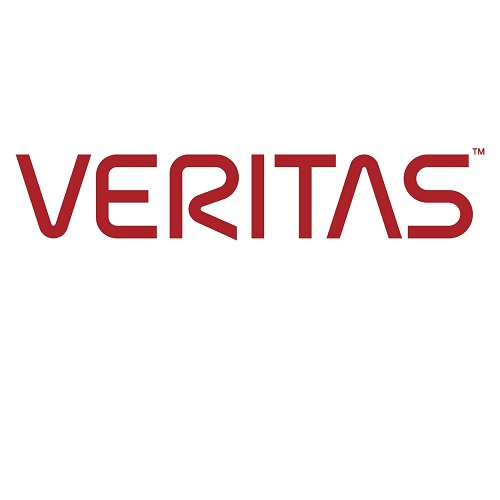
Only 15% is Classified as Business Critical Information; Data Overload Could Cost Organisations up to A$4.6 Trillion Cumulatively by 2020
 Veritas Technologies has released the results of its Global Databerg Report. The survey reveals that 52% of all information currently stored and processed by organisations around the world is considered ‘dark’ data, whose value is unknown. Additionally, another 33% of data is considered redundant, obsolete, or trivial (ROT) and is known to be useless. If left untamed, this dark and ROT business data will unnecessarily cost organisations around the world a cumulative A$4.6 trillion to manage by the year 2020.
Veritas Technologies has released the results of its Global Databerg Report. The survey reveals that 52% of all information currently stored and processed by organisations around the world is considered ‘dark’ data, whose value is unknown. Additionally, another 33% of data is considered redundant, obsolete, or trivial (ROT) and is known to be useless. If left untamed, this dark and ROT business data will unnecessarily cost organisations around the world a cumulative A$4.6 trillion to manage by the year 2020.
Organisations are creating and storing data at an ever-increasing rate due to a ‘data hoarding’ culture and an indifferent attitude to retention policy. This data could be anything from valuable business information to non-compliant information. The report reveals that IT leaders consider just 15% of all stored data to be classified as business critical information. For the average mid-sized organisation holding 1,000TB of data, the cost to store their non-critical information is estimated at more than A$900,000 annually.
“Understanding and acknowledging that a data hoarding culture exists is a first step in addressing the problem,” said Chris Lin, Veritas’ Senior Vice President & APJ Sales Leader. “There is an immediate need for organisations in Australia to take control of their Databerg and identify business value and risk. Today, only 13% of Australian organisations do so. Data needs to be classified based on the organisation’s data retention policy and there is a growing demand for an effective information journey for dark data to be implemented.”
The Veritas Global Databerg Report provides insights from over 2,500 IT professionals in 22 countries, including 100 from Australia. It follows the company’s introduction of the Data Genomics Index, the industry’s first accurate view of the composition of enterprise data based on analysis of billions of files. The Data Genomics Index found that over 40% of stored data has not been touched in over three years, and is considered ‘stale’. The Global Databerg Report confirms that IT leaders are aware of this problem. These two industry-first studies marry employee perspective with file system reality and hopefully together, they can be a catalyst for organisations to finally address the crippling data growth dynamic they are experiencing.
The Vast Majority of Business Data Sits Below the Waterline
Around the world, the Global Databerg Report found that on average 52% of all stored data is either dark or redundant, obsolete and trivial (ROT). The worst dark data offenders are Germany, Canada and Australia with respectively 66%, 64% and 62% of their stored data defined as dark. The highest proportion of clean and identified business critical data was found in China (25% clean), Israel (24% clean) and Brazil (22% clean). But this still means that more than 80% of all data they are storing is dark or has no value for the business.
A Fear of the Delete Key
ROT data has already been identified by organisations as redundant, obsolete or trivial and provides little or no business value. But still 48% of all stored data in Denmark, 44% in the Netherlands and 43% of all data in the United Arab Emirates (43%) belongs to this category. In the USA, 30% is ROT data. At 28%, Australia’s ROT data is 5% below the global average of 33% and dark data is 10% worse.
The Race to the Cloud is Feeding the Databerg
Cloud adoption and processing is set to increase by more than a third during 2016 to 46% from 33%, with Brazil and USA leading with an average of 61% of data predicted to be in the cloud by the end of the year. Although the short term driver is to reduce cost, there is increasing concern over lock-in costs in the future – pushing data to the cloud can just move the problem further away, adding to the dark and unclassified dark data.
Consumerisation of IT Has Blurred the Lines for Employees Hitching a ride on corporate IT means businesses pay to store data that has no business value to them. On average, 26.5% of employees store personal data on their work devices. Australia ranked in the middle in terms of employee discipline in adhering to corporate data policies, with 26% of employees storing data on work devices. Because so much is dark, IT cannot tell which data has business value and which is just ‘cat videos’.
More Personal Data Than Ever Exists on Corporate Networks
Not understanding what is being stored on corporate resources is very risky and leaves no ‘plausible denials’ in the event of regulatory or criminal investigation. In Australia, employees using corporate networks for their personal use is growing, leading to more types of files such as personal legal and ID documents (70%), photos (69%) or non-approved software (47%) being stored at work. It may seem innocent at first, but many of these documents may trigger new data privacy rules in regional jurisdictions or potential copyright issues.
About The Global Databerg Report
The Global Databerg Report is a large global independent survey covering 2,550 senior IT decision makers across 22 countries. The study, conducted for Veritas by research firm Vanson Bourne, looks at how organisations across the globe (including the Americas, Europe, Middle East, and Asia Pacific) store and manage their data, highlighting attitudes and behaviours that are fuelling an unprecedented data explosion.
Please download the Veritas Global Databerg Report for more information.
Click to view the Veritas Global Databerg Infographic.
About Veritas Technologies
Veritas Technologies enables organizations to harness the power of their information, with information management solutions serving the world’s largest and most complex environments. Veritas works with organizations of all sizes, including 86 percent of global Fortune 500 companies, improving data availability and revealing insights to drive competitive advantage. www.veritas.com.




